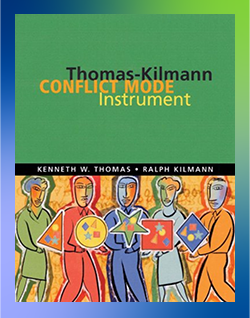 Conflict is caring
Conflict is caring
You know it’s time to polish your resume if you don’t care enough to voice your frustrations. Or call out the cognitive disconnect. Or make your case for a different approach. Personally and professionally, we tend to treat conflict as a negative event. But if someone cares enough to state their disagreement, that means they are invested in the outcome. Conflict only arises in situations where participants care enough about the subject to question whether the means best serve the ends.
Conflict > Discomfort > Disruption > Innovation > Progress
There’s a saying that pops up all over the place, from startup incubators to therapists’ offices. ‘If you’re not uncomfortable, you’re not growing.’ The first step of market research is to identify customer problems. Regardless of industry, successful products address user pain points. They transform a ‘problem’ into an ‘issue’ that becomes their product’s unique selling point (USP). Initially, conflict may feel uncomfortable. Addressing that discomfort, is seizing the opportunity of disruption. Conflict can be a source of innovation, inspiring new approaches and new products. Handled effectively, conflict can catalyze personal and professional evolution.
It happens to the best of us
As observed in The Good Place, ‘Pobody’s nerfect.’ We all have bad days. We all have triggers. For many of us, how we handle conflict is a major factor in the course and quality of our careers and lives. We all know that person who seems like they were born Zen. We all also know someone who makes our worst self seem enlightened. Don’t fall into the comparison trap!
Conflict is inevitable; catastrophe isn't
It doesn’t have to derail you. You can learn to steer conflict. The degree of personal investment required for conflict to arise can propel you, and your team, to an even-better-than-expected outcome—the bigger win-win—for everyone. Nobody's always on point, but knowing what your options are enables you to course correct at any point.
Effective conflict management isn’t one-size-fits-all
Nor is it a complicated secret formula with prerequisite certification in hostage negotiation. Although it is a dynamic strategy, conflict management is the product of five building blocks. Humans have five basic responses to conflict: avoiding, accommodating, compromising, collaborating and competing. We all have default settings, a familiar favorite or preferred combo. Each approach, or possible combination, has situations in which it is optimal. No single tactic can best serve every situation.
 Manage conflict as a growth catalyst, instead of weathering the discord
Manage conflict as a growth catalyst, instead of weathering the discord
Conflict only arises in situations when participants care about the outcome. Understanding how humans handle conflict will enable you to steer it towards the bigger win for everyone. If you’ve got enough skin in the game to question the course, then why wouldn’t you go for the better outcome?
Join us for the March 12th WESTevent, a workshop on effective conflict management. Presenter Rita B. Allen will explain how you can transform conflict from a stressor to a healthy catalyst for progress. Rita will teach you how to recognize the five modes of conflict management, and how to determine which one(s) will yield the best outcome for any, and each, situation.
Want to get a head start on the event? Check out The Thomas-Klimann Conflict Mode Instrument, pictured above. By clicking the affiliate link in the book image, you are supporting WESTorg at no extra cost to yourself. Thanks in advance!

